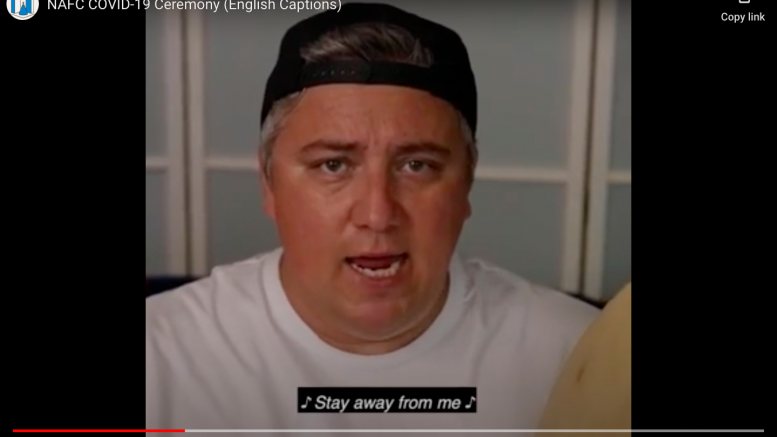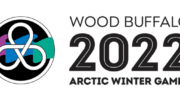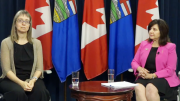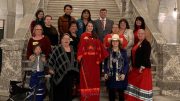(ANNews) – July marks the launch of a new digital campaign, Take Care in COVID, from the National Association of Friendship Centres (NAFC) to help address COVID-19 myths and misinformation among urban Indigenous communities across the country. As Canada’s most significant providers of culturally enhanced programs and services for off-reserve Indigenous residents, NAFC unveiled a series of humorous videos featuring Treaty 3 Anishinaabe comedian, Ryan McMahon, to address common misconceptions around prevention, contraction and treatment of the virus.
“This pandemic has hit urban Indigenous communities especially hard. Indigenous people living in urban settings have faced multiple challenges in being recognized and appropriately supported throughout the pandemic response,” says Jocelyn Formsma, Executive Director of NAFC.
“As Friendship Centres, we were really concerned that no one was really speaking to urban Indigenous populations.
“While the impact of COVID-19 on Indigenous people is not funny, we know how our people use humour to get through many difficult situations. We wanted to find a creative, accessible and memorable way to bring credible resources to people and help keep them and their families safe.”
The video series features Ryan McMahon, who spends much of his time working with youth in reclaiming Indigenous culture and history through his speaking and training initiatives. The campaign will address such misconceptions as mosquitos spreading COVID, vitamin D providing protection and traditional medicine myths, while also encouraging mask-wearing, practicing social distancing, frequent hand washing and avoiding crowds.
“I am so proud to be a part of this campaign and to use my comedy to help deliver useful information about COVID-19 to help keep people safe and healthy as this pandemic continues to evolve,” says comedian Ryan McMahon. “It’s unbelievable to see what’s floating around on the internet and even being shared by friends or even family members. That’s why there is such a need to get trusted information out there.”
The campaign also included a Facebook Live panel on Wednesday, July 22 that featured Dr. Janet Smylie, Director of Well Living House, and Jocelyn Formsma, who provided practical tips and answered audience questions on COVID-19 protection measures for this summer. All resources are available to the public through NAFC’s website and Facebook page. Individuals can also visit one of over 100-member local Friendship Centres or Provincial/Territorial Associations across Canada.
As part of the mandate of Friendship Centres for over half a century, its focus has been facilitating the transition of Indigenous people from rural, remote and reserve life to an urban environment. In addition to COVID-19 resources, NAFC and local Friendship Centres are also community hubs that foster cultural connection, community and provide culturally relevant services for women, vulnerable populations, youth, transition services, outreach programs and community wellness.
“This is important because more than 60 per cent of Indigenous people live off reserve and in urban areas. Because it is so challenging to collect good data on the rate of COVID-19 among urban Indigenous, the Friendship Centres are a crucial lifeline for this vulnerable community. And it’s why now, more than ever, we need the support of all levels of government to work together to support the health and safety now and beyond COVID-19,” says Formsma.
With NAFC’s work to advocate for more funding to support urban Indigenous people, the organization was encouraged to see the federal government’s commitment in April that $15 million would be made available to urban Indigenous organizations as part of the Indigenous Community Support Fund for COVID-19. An additional $75 million was made available in May to support off-reserve Indigenous people and those living in urban centres, including funding to local Friendship Centres which will enable them to focus on economic recovery such as childcare, youth programming, employment and training, while also continuing to provide frontline COVID-19 essential services.
About National Association of Friendship Centres
Friendship Centres are Canada’s most significant off-reserve Indigenous service delivery infrastructure and are the primary providers of culturally enhanced programs and services to urban Indigenous residents. For over half a century Friendship Centres have been facilitating the transition of Indigenous people from rural, remote, and reserve life to an urban environment. The NAFC is a network of 107 Friendship Centres and Provincial/Territorial Associations (PTAs) from across Canada.







Be the first to comment on "NAFC launches campaign to tackle COVID-19 misconceptions among urban Indigenous communities"